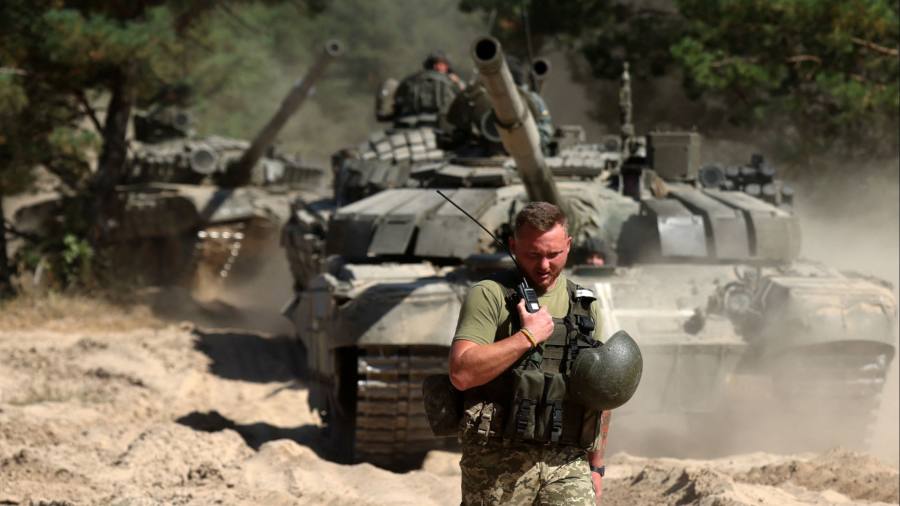Receive free G20 updates
We’ll send you a myFT Daily Digest email rounding up the latest G20 news every morning.
G20 leaders have failed to condemn Russia’s invasion of Ukraine in a joint statement after China and Russia rejected language that blamed Moscow for the conflict.
The New Delhi summit declaration refers only to the “war in Ukraine”, a formulation that supporters of Kyiv such as the US and Nato allies have previously rejected as it implies both sides are equally complicit.
That statement, hammered out over weeks of negotiations and hours of intense debate between diplomats as the summit was already under way, is a blow to western countries that have spent the past year attempting to convince developing countries to condemn Moscow and support Ukraine.
The previous G20 declaration, made in Indonesia last November, referred to “aggression by the Russian Federation against Ukraine”. Western diplomats said China’s refusal to repeat that formulation was critical in pushing host India to propose compromise language.
Referring to the war, India’s external affairs minister S Jaishankar said: “It is a fact this is today a very polarising issue and there are multiple views on this . . . In all fairness it was only right to record what was the reality in the meeting rooms and that is the reality that is sought to be captured.”
The declaration also contains a pledge by the leaders of the world’s biggest economies to “pursue and encourage efforts to triple renewable energy capacity globally”, but does not include any deadline for phasing out fossil fuels. China and Saudi Arabia led efforts to block such language in G20 meetings in July.
Adopting the declaration will be a foreign policy coup for India and its prime minister Narendra Modi, after speculation that divisions over Ukraine were too large to be bridged. Modi will face voters in a poll in which he will be seeking re-election to a third term in early 2024.
“We highlighted the human suffering and negative added impacts of the war in Ukraine with regard to global food and energy security, supply chains, macro-financial stability, inflation and growth,” the joint statement said. “There were different views and assessments of the situation.”
The declaration called for a “just and durable peace in Ukraine” but did not explicitly link that demand to the importance of Ukraine’s territorial integrity, as western countries had pushed for. It also did not include the statement from the 2022 version that noted “most members strongly condemned the war”.
Jake Sullivan, the US national security adviser, nonetheless said the declaration had a “set of consequential paragraphs” on the war in Ukraine.
“From our perspective, it does a very good job of standing up for the principle that states cannot use force to seek territorial acquisition . . . that the use of nuclear weapons is inadmissible, that a just peace must be based on the principles of the UN Charter,” he added.
Overall, the statement was a “vote of confidence that the G20 can come together to address a pressing range of issues, and also to deal with hard issues that actually very much divide some members from others”, Sullivan said.
India, which styles itself as a leader of the so-called Global South group of developing countries, also succeeded in its campaign to have the G20 induct the African Union as a full member.
“It is a matter of particular satisfaction to us that the African Union has become a member of the G20 during the Indian presidency,” Jaishankar told reporters.
The joint statement also makes reference to digital public infrastructure, which India has been promoting during its presidency after its successful push to bring more than 1bn people online.
Read the full article here




